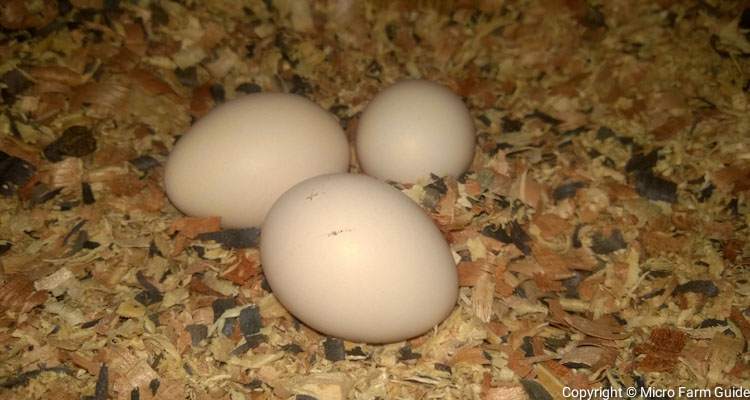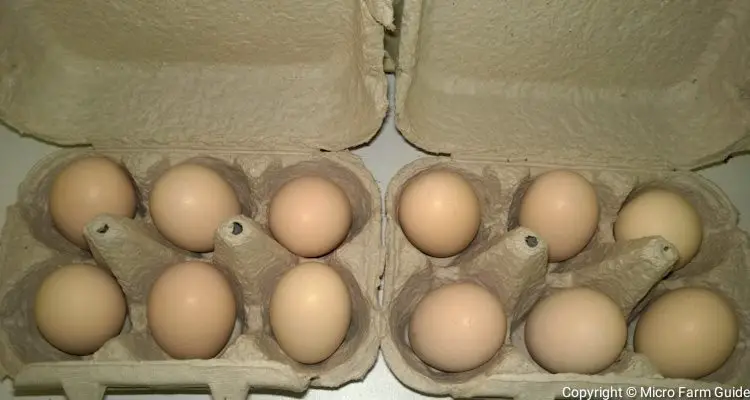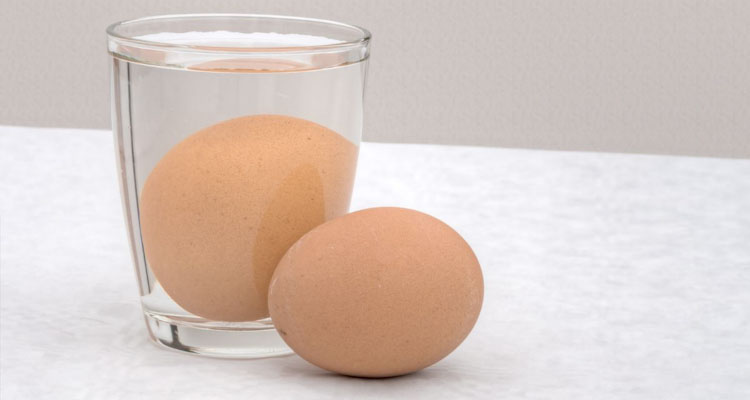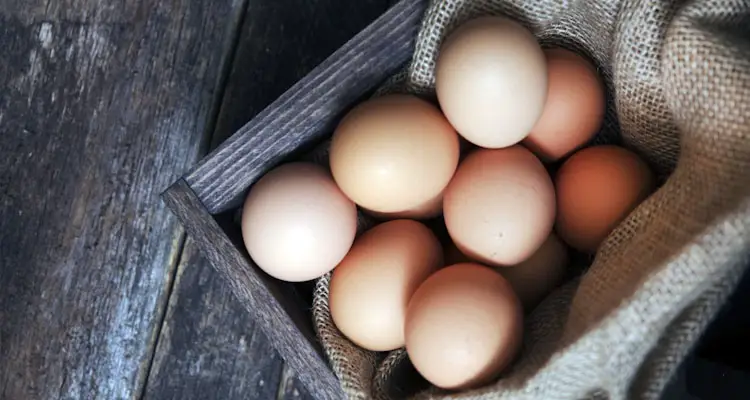Generally, fresh eggs can last up to 2 weeks if stored at room temperature or up to 3 months if refrigerated, with their protective coating still intact.
However, this time can vary considerably due to environmental temperature and how the eggs were handled before storage.
In essence, the answer depends on several factors, including temperature and whether or not the eggs were washed.

As a result, if you store eggs for an extended period, you will need to test them to avoid the unpleasant experience of cracking a rotten egg.
In this article, we will consider how long fresh eggs last in several conditions and a simple test to confirm whether or not the eggs are usable.
How Long Can You Store Fresh Eggs On The Counter?
On average, fresh eggs can be stored on the counter for two weeks. If your kitchen is chill and the eggs are out of direct sunlight, they might survive up to a month.
If you leave your eggs on the counter for longer than a couple of weeks, we advise doing a freshness test before using them.
There is no guarantee that they will still be fresh. It is always wise to be cautious with eggs as contaminated eggs can cause several illnesses.
How Long Can You Store Fresh Eggs In The Fridge?
Fresh eggs can last three to six months in a refrigerator, provided you did not remove the protective coating.
Keeping eggs in the fridge will help them maintain their quality and keep them fresh for up to seven times longer than just leaving them on the counter.

It is always wise to refrigerate your eggs if you’re unsure whether you will consume them within a few days.
As with eggs stored on the counter, it is always wise to do a freshness test if your eggs have been left for long periods or if you have forgotten how long they have been there.
It would also be best to keep your eggs in a carton or sealed container to prevent them from being contaminated by other items in your fridge.
How To Conduct An Egg Freshness Test
To test the freshness of an egg, fill a medium-sized bowl with water. Then place your egg into the water to see if it will float or sink.
As we mentioned before, this is the simplest way to confirm whether your eggs are still fresh or if they’ve been stored too long.

While writing the date the egg was laid is always a good practice, there will still be times when you must confirm the freshness of your eggs.
Thankfully, this is a quick and easy test to perform. Besides, doing this before cracking and eating questionable eggs can save you a lot of trouble later.
How the egg reacts to the water will tell you whether it is fresh or not. Let us see what the possible reactions mean.
1. If The Egg Floats
If the egg floats in the water, it is no longer suitable to eat and should be immediately disposed of.
Spoilt eggs float because an air bubble has developed inside, indicating possible conditions for bacterial growth.
This bubble is partially formed because eggs are porous and moisture and gas escape through the shell as time passes. Fresh eggs do not have this, so they do not float.
2. If The Egg Sinks Straight
In some cases, your egg will sink and remain standing straight up. This sign that the egg is still good to eat but should be consumed soon.
The air bubble is beginning to form, and although safe to eat at the time it is tested, the egg will soon go bad.
3. If The Egg Sinks Horizontally
If your egg sinks and falls to the bottom of the bowl to lie horizontally, you can be confident that your egg is still good and perfectly safe to eat.
By performing this test, you risk damaging the protective layer. As a result, the eggs should be used after they pass the test.
Should Eggs Be Washed Before Being Stored?
Ideally, you should not wash your eggs before storing them unless local regulations require this for commercial purposes.
This is because eggs have a thin cuticle on their exterior that will prevent bacteria or oxygen from getting through the pores in the shell. You risk removing this protection by washing the eggs.

If you need to wash your eggs first for some reason, don’t worry, they won’t spoil immediately. Nevertheless, their shelf life will reduce considerably. As a result, you should store them in a clean, chill location.
Final Thoughts
Depending on the storage method, fresh eggs can last between 2 weeks and six months, with refrigerated eggs lasting much longer than those kept on the counter.
We’ve heard reports of people keeping eggs for even longer than six months, but this is not something we would recommend.
Nevertheless, if you are unsure about the length of time or question the freshness of the stored eggs, you should perform a simple freshness test.
Despite this, even three months is a long time to be in a fridge. During those months, many scented items such as garlic and onions can contaminate your eggs with their smell.
With that said, you should pay attention to how you store your eggs, washing them only when necessary, as this also affects how long fresh eggs last.
References
U.S. Department Of Agriculture. How We Store Our Eggs – And Why. tellus.ars.usda.gov. Accessed October 2022

